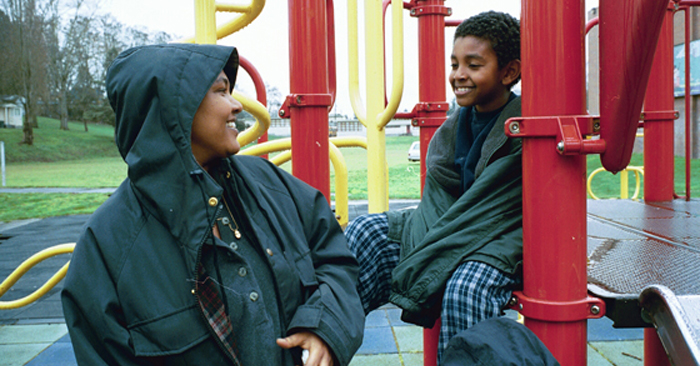The Impact of Family Involvement on the Education of Children Ages 3 to 8
A Focus on Literacy and Math Achievement Outcomes and Social-Emotional Skills

This report summarizes research conducted primarily over the past 10 years on how families’ involvement in children’s learning and development through activities at home and at school affects the literacy, mathematics, and social-emotional skills of children ages 3 to 8. A total of 95 studies of family involvement are reviewed. These include both descriptive, nonintervention studies of the actions families take at home and at school and intervention studies of practices that guide families to conduct activities that strengthen young children’s literacy and math learning. The family involvement research studies are divided into four categories:
- Learning activities at home, including those that parents engage in to promote their child’s literacy and/or math skills outside school
- Family involvement at school, including the actions and interactions that families have while in the school building
- School outreach to engage families, including the strategies that schools and teachers use to engage families and make them feel welcome
- Supportive parenting activities, including the nature and quality of the parent-child relationship and home environment, rule-setting, and caring behaviors
Key Findings
- Family involvement is important for young children’s literacy and math skills. The majority of studies, including some randomized control trials (RCTs), demonstrate this positive link. A few studies show positive relations with social-emotional skills. The weakest association was between family involvement at school and children’s outcomes.
- Parents from diverse backgrounds, when given direction, can become more engaged with their children. And when parents are more engaged, children tend to do better.
- This review also provides recommendations for additional lines of inquiry and implications to guide next steps in both research and practice. While there is still more to learn about how to connect with and support caretakers’ efforts to promote children’s learning, what we already know from extant research can help guide this process.
More children attend preschool and all-day kindergarten than ever before, and educators are being urged by federal, state, and local institutions to use research-based or evidence-based approaches to improve their work with families and families’ involvement with their children and the school. This review strengthens the belief that interventions to boost family involvement may be a critical piece when trying to support children’s early learning.






